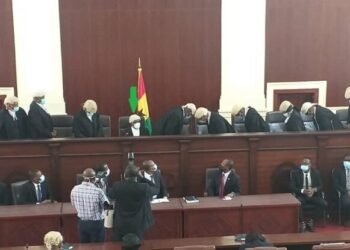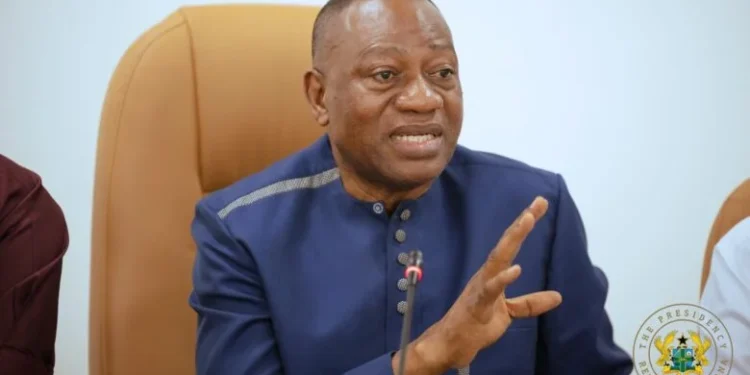In the lead-up to the 2024 general elections, Civil Society Organizations (CSOs) have raised concerns about the potential impact of internet access on the electoral process. These organizations argue that the preservation of internet access is crucial for ensuring a free, fair, and transparent election.
Civil Society Organizations (CSOs) issued a resounding call to the government to refrain from shutting down internet access under any condition during this critical period. These organizations asserted that an open and accessible internet plays a crucial role in facilitating a transparent, inclusive, and democratic electoral process.
This comes in the wake of some 24 countries that have imposed Internet shutdowns in the past during their election years, which hindered the full enjoyment of a wide range of fundamental rights and freedoms.
The Manager of the KeepItOn campaign, Felicia Anthonio, said this was an unprecedented year for democracy as national elections were expected to take place in at least 64 countries.
With billions of people at risk of shutdowns during election periods, she said the stakes for democracy and human rights this year were higher than ever. She, therefore, urged the government not to disrupt access to the Internet as it violated fundamental human rights.
“A lot of governments would shut down internet during election periods with excuses that it is for national security reasons but we need them to stop using that as an excuse and rather look at increasing the access to improve national discourse.”
Felicia Anthonio, Manager of the KeepItOn Campaign
The Internet has become an indispensable tool in the modern electoral process. It serves as a platform for political campaigns, voter education, and the dissemination of information. Denying individuals access to the internet during elections jeopardizes the principles of freedom of expression, information, and association.
The availability of the Internet ensures transparency and accountability throughout the electoral process. Voters can access real-time information about candidates, party manifestos, and election-related news, enabling them to make informed decisions. Social media platforms and online news outlets also foster open discussions, allowing citizens to question candidates, address concerns, and raise awareness about electoral irregularities.
Impact of Internet Shutdown

The call to preserve internet access during elections aligns with international standards and best practices. Organizations such as the United Nations Human Rights Council and the African Commission on Human and Peoples’ Rights advocate for the protection of freedom of expression and access to information, including during electoral periods. Shutting down the internet contradicts these principles and can lead to negative international perceptions.
The internet has become a human right. In the summer 2016, the United Nations Human Rights Council passed a non-binding resolution condemning countries that intentionally disrupt access to the internet for its citizens. This resolution builds on article 19 of the Universal Declaration of Human Rights, which covers freedom of expression, and particularly section 32, which enshrines “the promotion, protection, and enjoyment of human rights on the Internet”. Unfortunately, currently, there are no binding sanctions for governments that restrict the internet. There is still much to be done.
“Internet shutdowns violate fundamental human rights and governments have the duty to protect these rights. So, the media needs to re-echo these calls that we are making,” Mrs Anthonio said.
Internet access empowers citizens and CSOs to monitor and report any irregularities that may occur during the electoral process. Real-time reporting through social media platforms can help address issues such as voter intimidation, ballot box stuffing, or any attempts to manipulate election results. By facilitating the dissemination of information, the Internet plays a crucial role in ensuring a fair and credible election.
Moreover, a shutdown of the internet during elections can have severe economic implications. The digital economy, which relies on uninterrupted connectivity, may experience disruptions affecting businesses, e-commerce, and financial transactions. Furthermore, international investors may be deterred by a country that imposes internet shutdowns, potentially undermining Ghana’s economic growth and development.
As Ghana prepares for its 2024 elections, the role of the Internet in the electoral process cannot be overstated. CSOs have urged the government to preserve internet access, recognizing its importance for a free, fair, and transparent election. The government’s response will be crucial in determining the success of the 2024 elections and the future of democracy in Ghana.























